Columbus Circle Controversy
Recently, State, City, and local governments across the United States have been debating whether or not to remove statues of prominent figures in American history. The case for removal stems from the fact that the individuals represented by these statues acted in immoral and divisive ways or perhaps even committed atrocities against certain populations. The case against removal states that although this may be true, history cannot be erased, and we must learn from the past.
On Saturday, August 12, a protest took place in Charlottesville, Virginia as a response to local officials’ plan to remove a statue of Confederate General Robert E. Lee. A car plowed into protesters killing Heather D. Heyer of Charlottesville. Dozens of others were injured in the commotion that day. The events of Charlottesville have fuelled tension, putting pressure on politicians to take a stand on the monument issue one way or another.
Although most controversial monuments are in the south, there are some scheduled for review or removal up north as well, and New York is no exception. On Wednesday, August 16, Mayor Bill de Blasio announced via Twitter that New York City would be evaluating statues within the five boroughs. “After the violent events in Charlottesville, New York City will conduct a 90-day review of all symbols of hate on city property,” de Blasio Tweeted. Hundreds of statues are scattered all across the city, including one of the controversial Christopher Columbus, which sits in the center of Manhattan’s Columbus Circle.
However, it was not de Blasio who brought the Columbus Statue into question. The question arose when City Council Speaker Melissa Mark-Viverito was advocating for the removal for another statue, that of Dr. J. Marion Sims, who conducted medical experiments on slaves. When asked about the Columbus statue, Viverito replied, “I would definitely encourage them to take a look at that one as well.” Many Americans view Christopher Columbus as a great explorer; others hold him responsible for the oppression and decline of America’s indigenous populations.
Columbus, who was born in the Republic of Genoa, has become a symbol for the Italian-American community. Every year, Columbus Day is celebrated on October 12, the day Columbus arrived in the New World. As of recent, an increasing number of municipalities have been switching from celebrating Columbus to celebrating the Native American and indigenous peoples’ culture. The latest major city to make the switch is Los Angeles, California following the LA City Council’s vote on August 30. The President of the Columbus Citizens Foundation, Angelo Vivolo, had this to say about the importance of Columbus: "[He] was an explorer, a renowned sailor, and later governor who certainly partook in actions over the course of his career that were deemed unjust. The Foundation believes that these actions and their long-term consequences deserve serious reflection and acknowledgement, but we cannot and will not deny the role this seafarer from Genoa had in the eventual shaping of the United States of America."
This presents a difficult situation for de Blasio, who holds his Italian roots dear. “I’m an Italian American. I’m a very proud Italian American,” the Mayor remarked. Regarding the controversy surrounding the statue, he stated, “There are some things to be proud of [about Columbus], there are some things to not be proud of, but I understand [...] why so many people feel so deeply about it.” The Mayor intends to march in this year’s Columbus Day parade on 5th Avenue.
Numerous critics are speaking out against the possible removal of the statue. One of whom is Joseph Guagliardo, chairman and CEO for the Conference of Presidents of Major Italian-American Organizations. Guagliardo spoke on John Catsimatidis’s radio show on AM 970 called “The Cats Roundtable.” Regarding Viverito Guagliardo stated, “[She] suddenly just woke up one morning on the 21st, and decided that the statue of Christopher Columbus should come down also.” New York State governor Andrew Cuomo also commented on the possible statue removal. Governor Cuomo, who participated in the West Indian Parade on Monday, remarked, “The Christopher Columbus statue is really about honoring Italian Americans. I for one for obvious reasons happen to believe in the Italian-American heritage. I believe in the contribution Italian-Americans have made, just as I believe in celebrating the Caribbean and the Israel day parade.” Vivolo also offered his viewpoint on the removal of the statue: "As all nations do, we must continue to reevaluate our history as Americans, and whom we choose to honor. That being said, we will state for the record that we will not allow that reflection to come at the expense of a monument that has come to represent the many achievements that Italian Americans have accomplished."
To further protect Columbus Day, The Order of Sons of Italy in America (OSIA) has created a petition calling on the White House to “rededicate the Presidency to both the holiday and to our community.” The group is also asking for the President to “host an official yearly signing ceremony in celebration of Columbus Day, the Italian American community and the importance of the immigrant experience in the making of our great nation." The petiton closes by reiterating what Columbus Day symbolizes: "Columbus Day represents not only the accomplishments and contributions of Italian Americans, but also the indelible spirit of risk, sacrifice and self- reliance of a great Italian icon that defines the United States of America.”
Meanwhile, a group of scholars, authors, and artists of Italian and Italian American culture and history, circulated a petition articulating the opposite view. “Christopher Columbus,” the document states, “is not the hero who will help pay tribute to … the values of integration, compassion, and human solidarity, those noble parts of the Mediterranean matrix of our identity.” The petition goes on to call on all Italian American community leaders “to facilitate an open debate within communities to explore new and more appropriate ways and figures through which to acknowledge the contributions of Italian Americans to this nation … [and] to stop opposing the replacement of Columbus Day by Indigenous Peoples Day anywhere in the United States."
As for the fate of the statue in Manhattan's Columbus Circle, that remains to be seen. When speaking to the New York Post, de Blasio spokesperson Eric Phillips has said the city currently does not have plans for the its removal.
































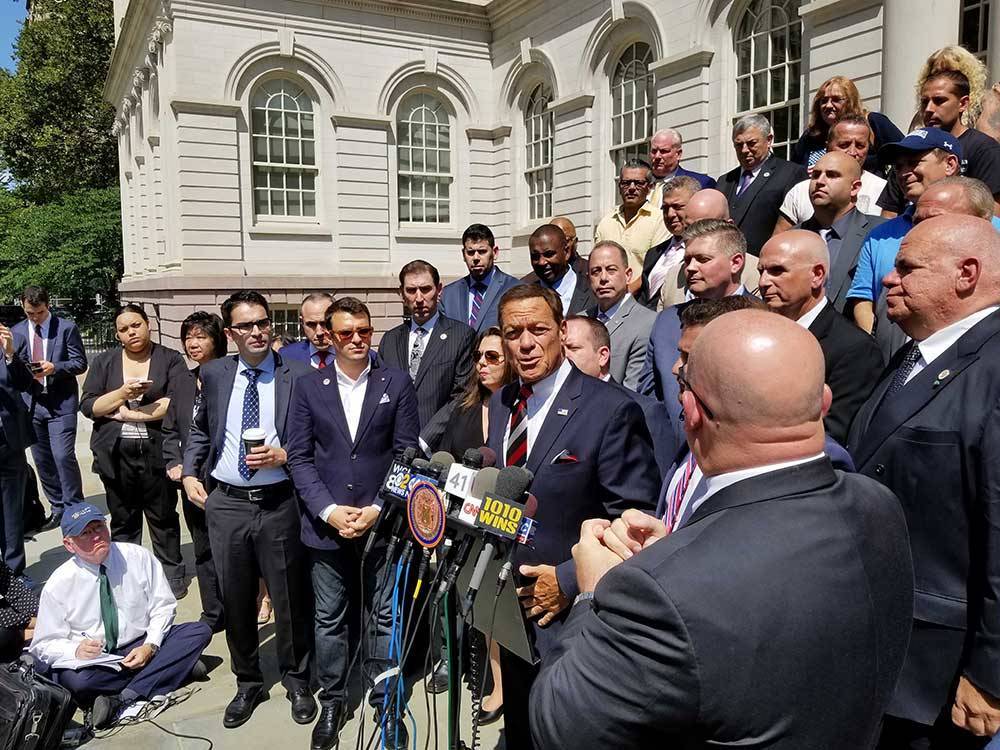
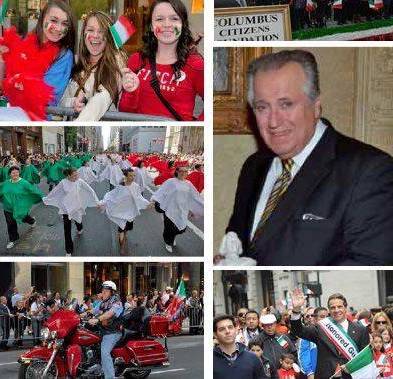

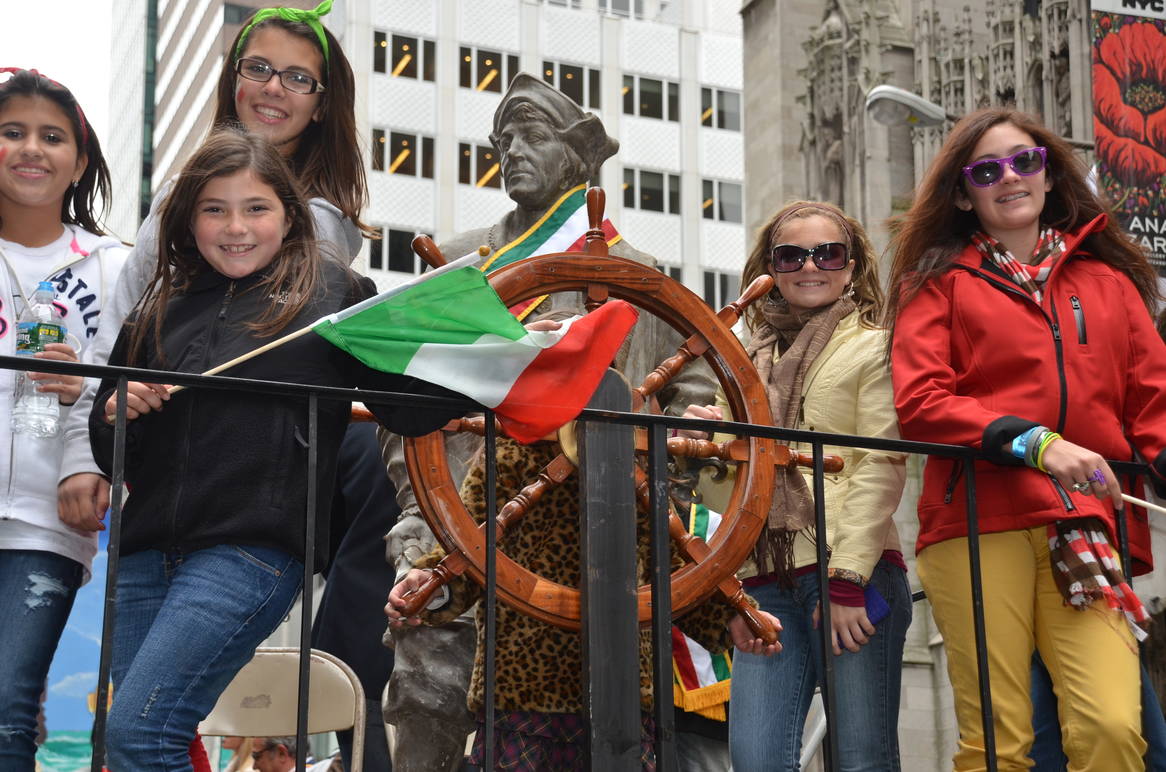


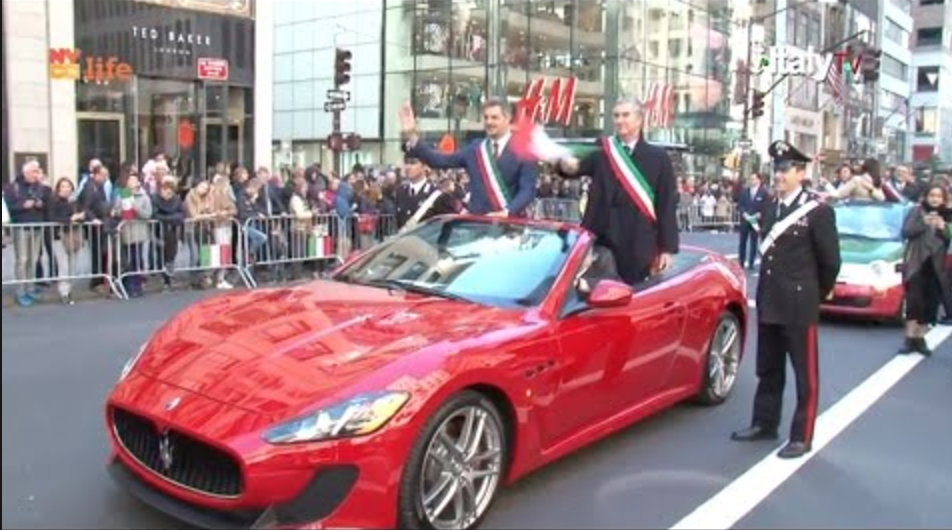









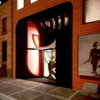
i-Italy
Facebook
Google+
This work may not be reproduced, in whole or in part, without prior written permission.
Questo lavoro non può essere riprodotto, in tutto o in parte, senza permesso scritto.